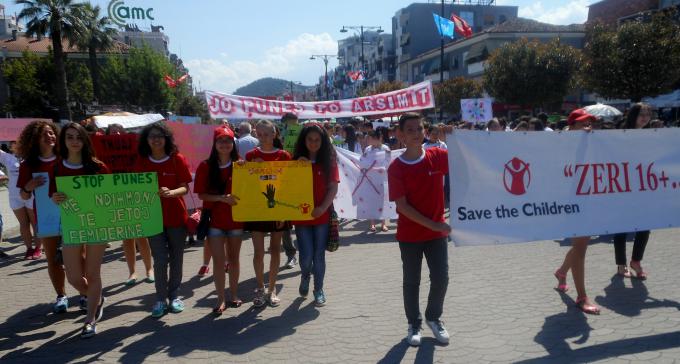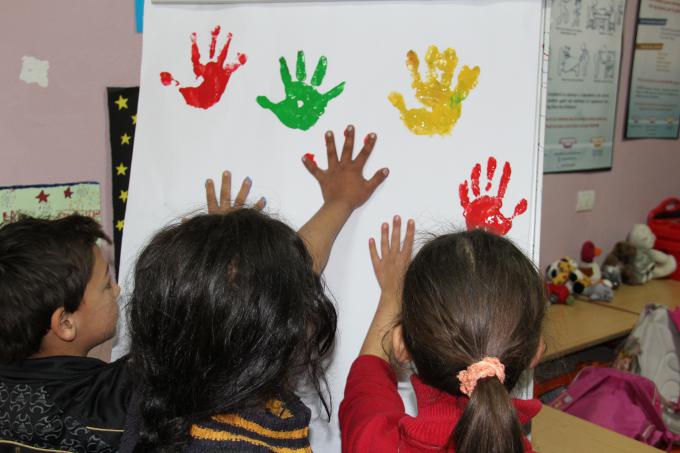No to Child Labour Yes to Education!
On the International Day against Child Labour, UNICEF and Save the Children draw the attention of the authorities to take concrete actions against child labour and exploitation.

Despite the number of children at work during the last decade, child labour remains a global challenge. UNICEF and ILO estimate worldwide that 11% of children aged 5 to 17 years (or approximately 168 million children in all) are engaged in some form of child labour. Almost one-third of child labourers are thought to be engaged in hazardous work that threatens their health, safety and development.
The 2012 INSTAT report found that 57,000 children in Albania (8.2% of those between 5-17 years old) were economically active. Children aged 5-13 years - who should not work at all - comprise 28.5 per cent of working children. Of all child labourers, around 80 per cent work in agriculture, and are usually unpaid because they labour in their family farms.
The 2014 joint national study by Save the Children and UNICEF, in partnership with the Ministry of Social Welfare and Youth, estimated that there are about 2.500 children in street situation in Albania. These children are mainly engaged as labourers, mostly begging and washing car windscreens. The more children work, the more likely it is that they will be absent from school or drop out altogether.
Education is a fundamental right for all children. Albanian law prescribe that children between ages 6- 16, should go to school. The lack of access to quality and safe education is a key push factor for children to engage in work, including harmful work. This is why education is key to prevent child exploitation and improve the quality of life for children who work.
UNICEF and Save the Children work to:
- Improve access of children to inclusive, quality education and to vocational training
- Strengthen families and raise awareness on the importance of education for children
- 3. Recognize that alternative routes especially for adolescents to vocational skills can be helpful in promoting learning and life skills
- Provide when necessary flexible education that responds to the need of children who work
UNICEF and Save the Children call government authorities to take appropriate measures for preventing children from all harmful forms of labour. We call the authorities to provide quality, free and inclusive education for all boys and girls. They should accelerate efforts to:
- Ensure that all children, especially the most vulnerable groups, have equal access to the essential education resources they need, such as textbooks and equipment, to fulfil their educational opportunities.
- Ensure that girls and other vulnerable groups have equal access to VET provision, especially through the provision of sufficient short course vocational training that is relevant, appropriate and properly delivered.
- Ensure for all children, especially the most vulnerable groups have access to an effective child protection system able to prevent and respond to all forms of violence abuse and exploitation
 Albania
Albania 